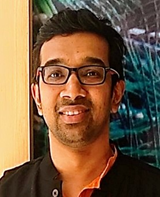|
Research @ EFLU
|

School of European Languages
| 1) About the Cluster |
| This cluster envisages an interdisciplinary, international and interculturally oriented investigationinto the salient features of Romanticism presupposing reenactments and remodellings of its diverse elements in (post)modern cultures and practices from the angles of Philosophy, Literature, Ecology and Pedagogy. It studies the streams that distinguish modernities and becomes perceptible in the Romantic movements. Such movements and trends in Europe are sought to be examined comparatively, to explore how Romanticisms emerged, developed, transformed and became revived in different literatures and forms of art and whether there are explicitly practical and also, philosophical versions of Romanticism in the debates that cover the time span attributed to Romanticism in Europe and India, and, also its impact in the later periods. For many contemporary students and researchers, this term is granted for a static phenomenon that only has links to a historical past. That past is the time of August W. Schlegel, Novalis, Friedrich Schlegel, Tieck und Eichendorff, Wordsworth, Coleridge, Chateaubriand etc. when the discussions laid the basis of the concept of Romanticism. |
| 2) Project Brief |
| The project aims to develop a theoretical framework with the comparative and contrasting studies in the four following sub- clusters: I. Philosophical Perspectives II. Literary Perspectives III. Ecological Perspectives IV. Pedagogical Perspectives These perspectives show affinities to Romanticisms in recent years. It will also examine, how Romantic ideas, aesthetics, and cultural practices relate to many of phenomena presentacross the continents till date. Especially in this context, India’s reception by German romanticism is historically related to the translations of Indian literature, writings on Indian philosophy, culture and historical accounts during the British colonial rule. The reception created an image of India, like the many colonized countries as the ‚exotic Other‘. That this ‘Other’ included not only the orient, but most of the colonized countries, as exemplified in diverse literary genres, non-fictional texts, which would be analysed in this cluster to explore how the romantic concepts corresponding to the Indian models and Indian aesthetics in the old and new times pave way to advanced studies in these areas. The assumption is that Romanticism with its salient features would manifest in the imagination of the individual about the world orders, ushering in ever new insights about its conception of the rational world, and this can be studied by examining the development of Romanticism in the above said four areas. |
| 3) Composition |
| Principal Investigator - Prof. Mathew John K (Retd), Department of Germanic Studies, School of European Languages, The English and Foreign Languages University, Hyderabad (Principal Investigator), Email: mathew@afluniversity.ac.in Principal Investigator – Dr. Nishant K. Narayanan, Assistant Professor, Department of Germanic Studies, School of European Languages, The English and Foreign Languages University, Hyderabad (Principal Investigator), Email: nishantkn@efluniversity.ac.in Sub-Cluster 1 (Philosophical Perspectives) Co-Is: Prof. Dr. Babu Thaliath and Prof. Rosy Singh (Inter-Institution Partners, CGS, JNU, New Delhi), https://www.jnu.ac.in/content/bthaliath; www.babu-thaliath.com Sub-Cluster 2 (Literary Perspectives) Co-Is: Prof. Dr. Frederike Middelhoff (W1-Professor of German Literature and Romanticism Studies), Department of German Literature and Its Didactics, Goethe-University Frankfurt (Inter-Institution Partner); https://www.uni-frankfurt.de/Middelhoff Sub-Cluster 3 (Ecological Perspectives) Co-PIs: Prof. Dr. Frederike Middelhoff (W1-Professor of German Literature and Romanticism Studies), Department of German Literature and Its Didactics, Goethe-University Frankfurt (Inter-Institution Partner); https://www.uni-frankfurt.de/Middelhoff Prof. Jibu Mathew George, Department of English Literature, School of Literary Studies, The English and Foreign Languages University, Hyderabad (Principal Investigator). Email: jibugeorge@efluniversity.ac.in Sub-Cluster 4 (Pedagogical Perspectives): Principal Investigator - Prof. Mathew John K (Retd), Department of Germanic Studies, School of European Languages, The English and Foreign Languages University, Hyderabad (Principal Investigator), Email: mathew@afluniversity.ac.in Principal Investigator – Dr. Nishant K. Narayanan, Assistant Professor, Department of Germanic Studies, School of European Languages, The English and Foreign Languages University, Hyderabad (Principal Investigator), |
| 4) Schedules |
| 4.1 International Conferences: It is planned to conduct the following international conferences in a hybrid mode during the project period. The presenters would be invited to submit their papers for publication.
4.2 Workshops Hybrid workshops are envisaged where research scholars, young and senior faculty members can come together to discuss various aspects regarding Romanticism, especially in the context of NEP. In this context following workshops are planned. Also, it is planned to publish papers which are presented in the workshops.
This will contain in addition to the CFPs and the papers in the format of their being presented, also the panel discussions in each live session with the experts. |
| 5) Deliverables |
| |
